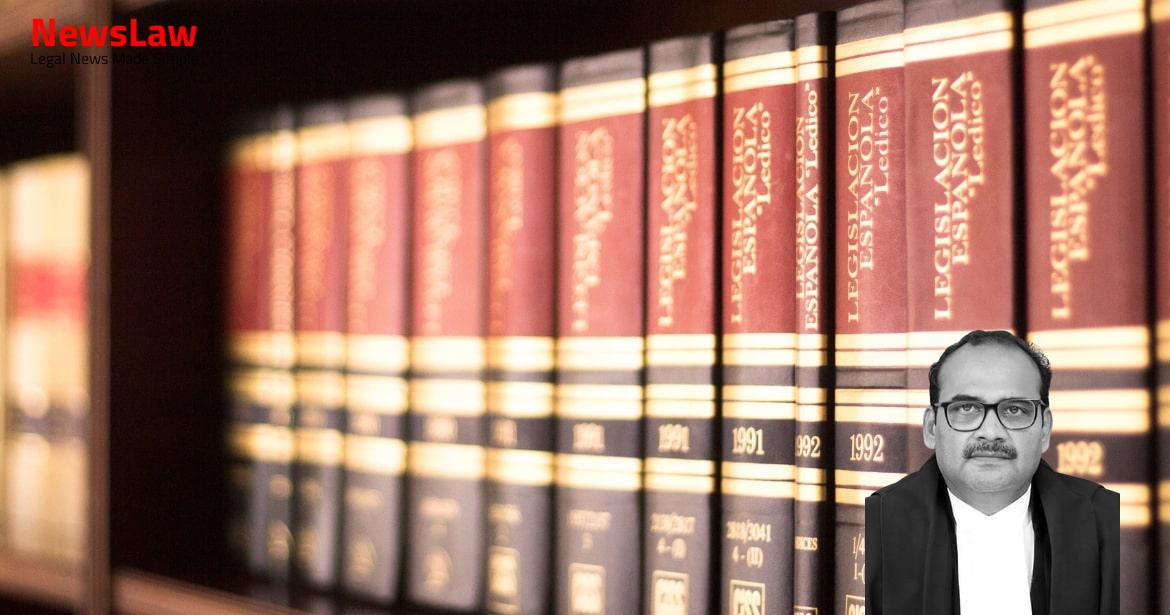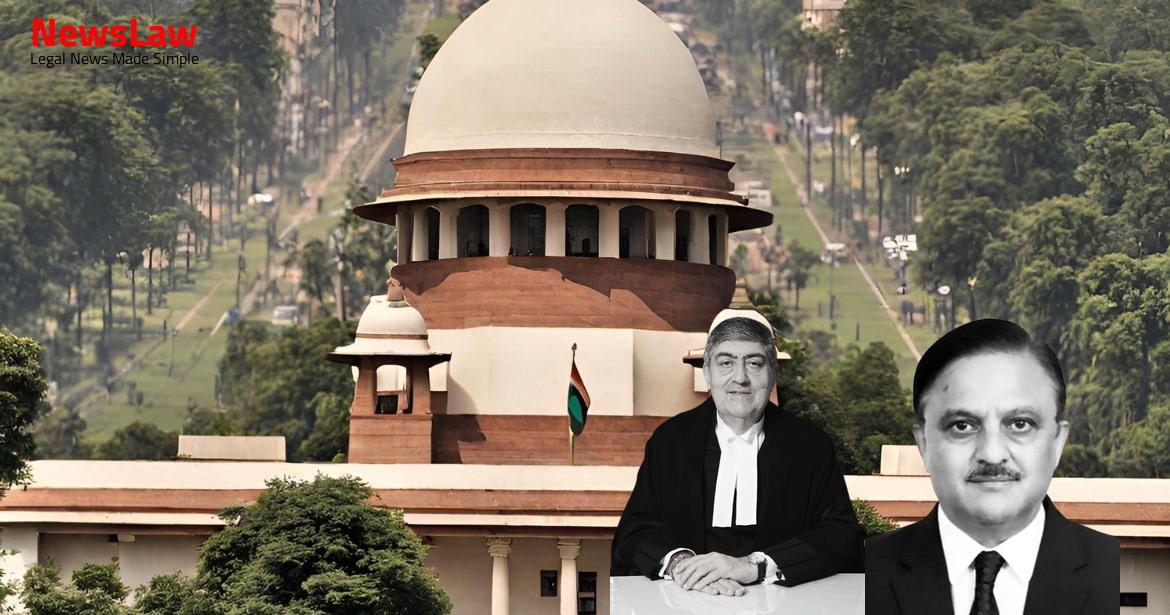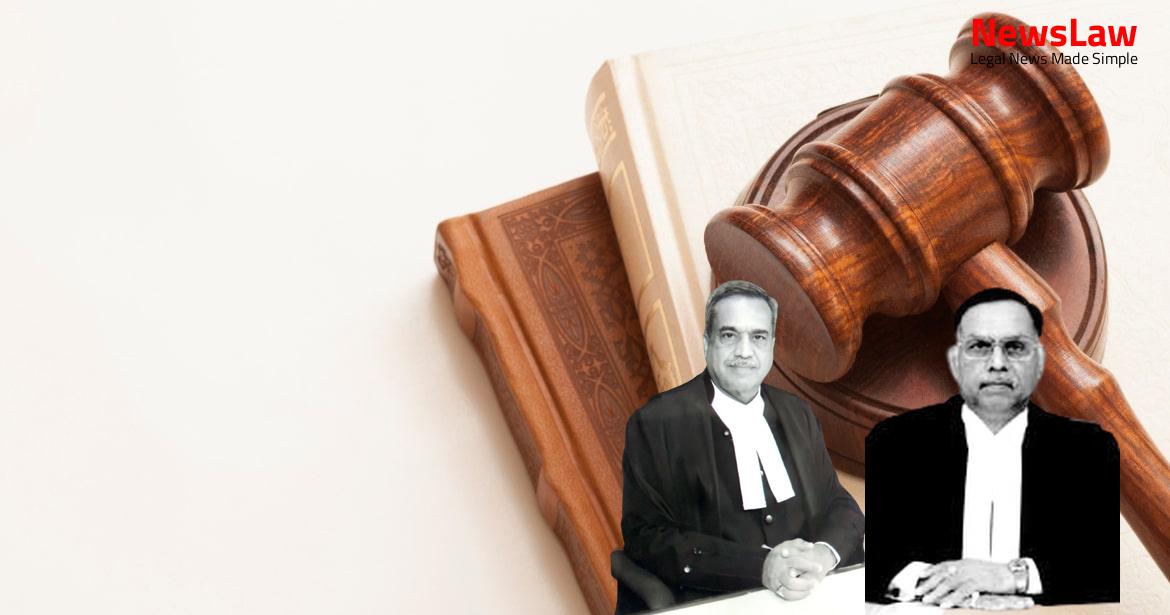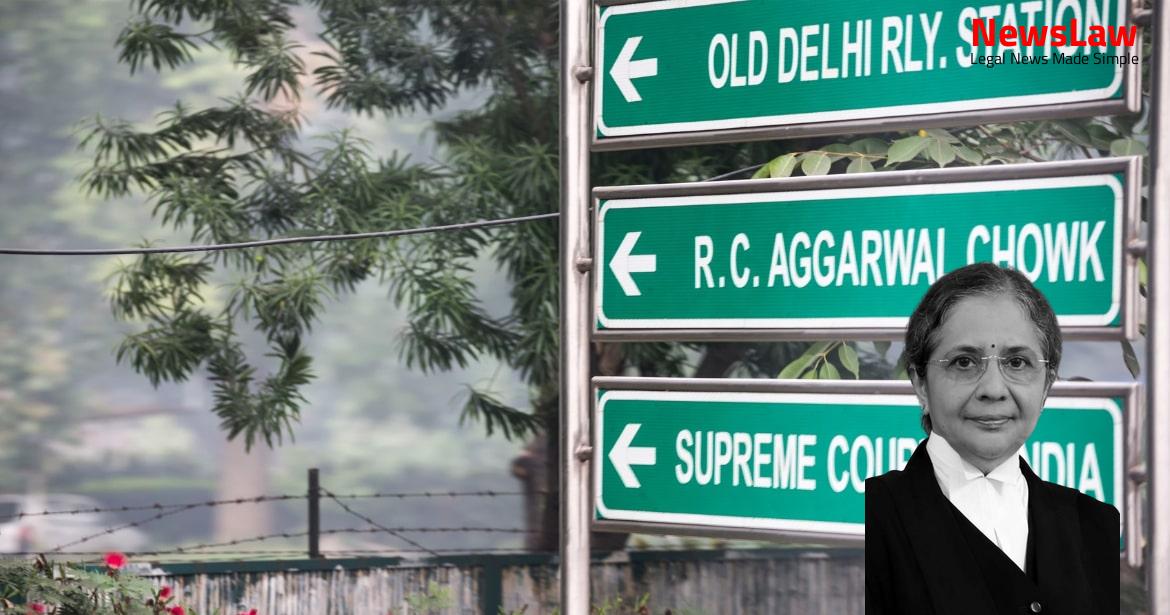Delve into the complexities of double jeopardy in prosecution as analyzed by the court. The case examines the intersection of offences under Section 138 of the NI Act and Section 420 of IPC, shedding light on the legal principles governing such scenarios. Stay tuned for insights into the court’s detailed analysis on this crucial legal issue.
Facts
- Appellant invested Rs.62,32,754 but did not receive any profit or land in return.
- A profit-sharing agreement was executed between the parties.
- Respondents owned 7 house sites in V.C.K. Layout, Coimbatore, mortgaged to Tamil Nadu Industrial Investment Corporation.
- Appellant worked as a Civil Engineer in Saudi Arabia and purchased a site from respondent no.2 upon returning to India in 2011.
- Respondent no.1 gave a cheque of Rs.87,00,000 for repayment but it bounced due to insufficient funds.
- Appellant filed a protest petition which led to a criminal case being registered against respondent no.1 to 4 for offences under Sections 120B, 406, 420, and 34 of IPC.
- A complaint under section 156(3) Cr.P.C was lodged but initially deemed no offence by respondent no.5.
- Appellant challenged the decision in the High Court of Madras and also filed a complaint under Section 138 of Negotiable Instruments Act.
- Appellant contended that respondents approached him to invest in land development with profit-sharing assurances.
- Respondents filed CRL.O.P. No 6750 of 2017 before the High Court of Madras for quashment of the proceedings.
- The High Court allowed the petition and quashed the proceedings based on the existence of pending proceedings under Section 138 of the N.I. Act.
- The High Court’s order was challenged in the instant appeal.
- The appeal assailed the High Court’s final order in CRL.O.P. No 6750 of 2017, where the proceedings under Sections 120B, 406, 420, and 34 of IPC were quashed.
- The High Court advised the appellant to raise objections through a protest petition against the closure report.
- The High Court noted that only the offence under Section 138 of the NI Act was evident based on the FIR allegations and continuing other proceedings would be an abuse of the Court’s process.
Also Read: Withdrawal of Prospective Resignation: Legal Analysis
Arguments
- The view taken in the cases of G. Sagar Suri (supra) and Kolla Veera Raghav Rao (supra) conflicts with the judgment of V.S. Reddy and Sons (supra).
- Judgment of Kolla Veera Raghav Rao (supra) considered but distinguished on facts regarding prosecution under Section 138 of NI Act and Section 420 of IPC.
- Quashment of proceedings for offences under Sections 420, 406, 120(B) and 34 IPC as directed by the High Court deemed unjustified based on the argument presented.
- Counsel for the respondents relying on the judgment of Kolla Veera Raghav Rao v. Gorantla Venkateswara Rao and Anr, (2011) 2 SCC 703 to support the bar of Section 300(1) of Cr.P.C. for prosecution under Section 420 of IPC.
- Identity of the ingredients of the offences is considered relevant for the plea of double jeopardy according to learned senior counsel Mr. S. Nagamuthu.
- The learned counsel for the respondents have relied on the judgment of G. Sagar Suri v. State of U.P. [(2000) 2 SCC 636 : 2000 SCC (Cri) 513]
- They contend that the issue has been settled more than two decades prior
- They argue that invoking the jurisdiction of a criminal court for offenses under Sections 406/420 IPC by the appellants is an abuse of the process of law
- It is now admitted in the counter-affidavit that none of the two appellants is a Director of Ganga Automobiles Ltd.
Also Read: Acquittal in Kidnapping and Abduction Case: Court’s Legal Analysis
Analysis
- Plea taken by respondent no. 1 to 4 that a person previously acquitted cannot be tried for the same offence subsequently.
- This plea applies only when it is demonstrated that acquittal for the previous charge would lead to acquittal in the subsequent charge.
- Offences under IPC do not require the same proof as offences under Section 138 of the NI Act.
- Section 138 of the NI Act does not necessitate proving fraudulent or dishonest intention at the time of issuing the cheque.
- Section 420 IPC, on the other hand, requires proof of fraudulent and dishonest intention.
- Legal presumption in a case under the NI Act is that the cheque was issued to discharge an antecedent liability.
- Section 482 petition for quashing the complaint under Section 138 of NI Act was dismissed.
- Prosecution under Section 138 of NI Act was already initiated against the appellants.
- Section 300(1) of CrPC bars retrying a person for the same offence or even a different offence on the same facts.
- Prosecution under Section 420 IPC was considered barred by Section 300(1) of CrPC in a similar case.
- Congress under Section 138 of NI Act and IPC with the same facts is not permissible.
- The judgment in Sangeetaben Mahendrabhai Patel (supra) has been relied upon in the case of M/s. V.S. Reddy and Sons (supra).
- In the cases of G. Sagar Suri (supra) and Kolla Veera Raghav Rao (supra), the Court found that prosecution under Section 420 of IPC is barred by Section 300(1) of Cr.P.C and liable to be quashed.
- The judgment in G. Sagar Suri and Anr. v. State of UP and Others, (2000) 2 SCC 636 was referred where prosecution for offences under Section 138 of NI Act and Sections 406 and 420 of IPC were considered.
- Conflicting views in judgments of equal strength should not be rendered, and issues decided should be referred to a larger bench for consistency.
- The conflicting judgments cited by the parties necessitated the formation of questions to be answered by a larger bench on the correct legal proposition.
- The appellant relied on the judgment of Sangeetaben Mahendrabhai Patel (supra) which considered various relevant judgments.
- Judgments cited by both parties were rendered by benches of two Judges.
- In Sangeetaben Mahendrabhai Patel case, G. Sagar Suri and Kolla Veera Raghav Rao judgments were referred but distinguished.
- It was not raised or decided that ingredients of both offenses were the same, and the bar of Section 300(1) of Cr.P.C. would not attract.
Also Read: K. vs. The State of Rajasthan)
Supreme Court Judgment Upholds Acquittal in Falsifying Date of Birth Case
Decision
- Registry to place the file before Hon’ble the Chief Justice of India for orders
Case Title: J. VEDHASINGH Vs. R.M. GOVINDAN (2022 INSC 825)
Case Number: Crl.A. No.-001678-001678 / 2022



